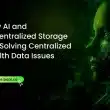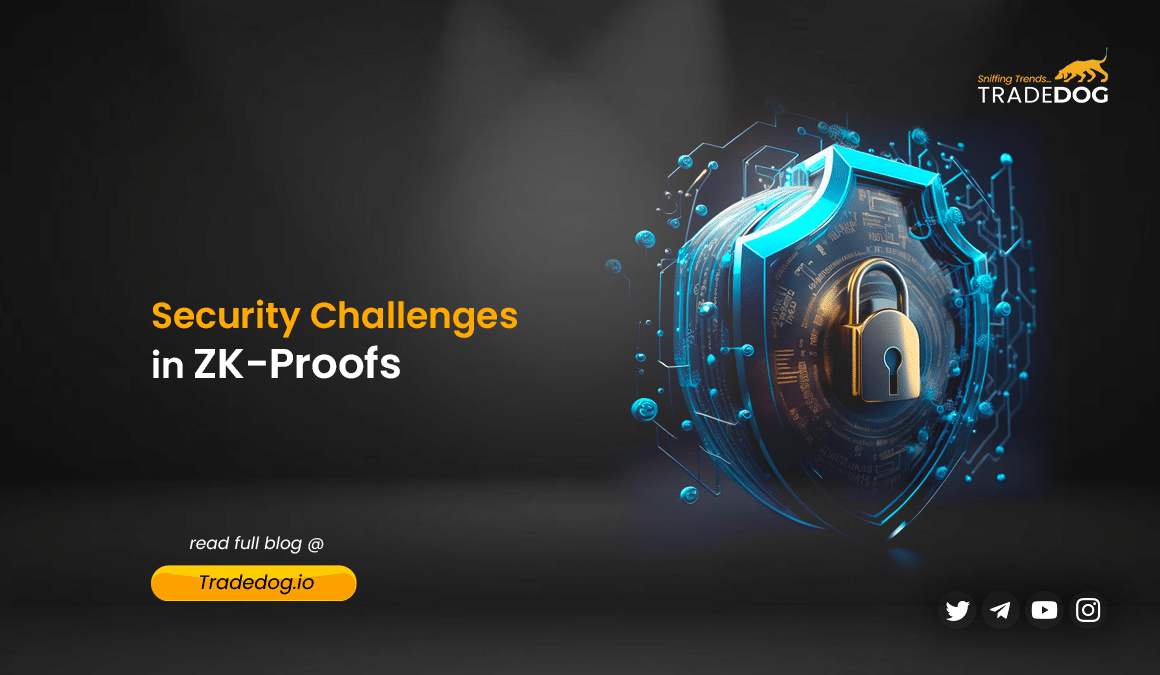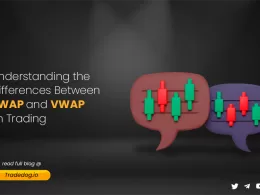Quick Links
In an era where digital privacy and security are more critical than ever, Zero-Knowledge Proofs (ZK Proofs) emerge as a beacon of hope. ZK Proofs are cryptographic methods that enable one party to prove to another that a statement is true, without revealing any information beyond the validity of the statement itself. This seemingly paradoxical concept has vast applications, from enhancing privacy in blockchain transactions to securing sensitive data in various digital interactions. However, as with all groundbreaking technologies, ZK Proofs come with their own set of security challenges.
This blog post delves into these challenges, shedding light on the complexities and potential vulnerabilities inherent in ZK Proof systems, and exploring the path forward in securing this promising technology.
Understanding Zero-Knowledge Proofs
At its core, a Zero-Knowledge Proof is a cryptographic protocol that allows one party (the prover) to convince another party (the verifier) of the truth of a certain statement, without conveying any additional information. This is achieved through a series of interactions or a single non-interactive proof where the prover systematically demonstrates the validity of the statement while revealing nothing else.
The Three Key Properties
Zero-Knowledge Proofs are defined by three essential properties:
- Completeness: If the statement is true, an honest verifier will be convinced by an honest prover.
- Soundness: If the statement is false, no deceptive prover can convince the honest verifier of its truth, except with some small probability.
- Zero-Knowledgeness: The verifier learns nothing beyond the validity of the statement, preserving the prover’s privacy.
Types of Zero-Knowledge Proofs
- Interactive ZK Proofs: These require multiple rounds of interaction between the prover and verifier, where the prover responds to randomly generated challenges by the verifier to prove the validity of the statement.
- Non-Interactive ZK Proofs (NIZKs): In contrast, NIZKs do not require any interaction between the prover and verifier after the initial proof is presented, making them more suitable for decentralized systems like blockchains.
Use Cases
The application of ZK Proofs spans various domains, from enhancing user privacy in digital currencies like Zcash, to secure identity verification processes without revealing personal information, and even in enabling confidential and efficient voting systems. The versatility and robust security model of ZK Proofs offer promising solutions to many of the privacy and security challenges faced in today’s digital world.
Security Strengths of ZK Proofs
Zero-Knowledge Proofs possess unique security features that make them an invaluable tool in the cryptographic arsenal.
- Enhanced Privacy: By allowing the prover to verify the truth of a statement without revealing any underlying information, ZK Proofs provide a powerful means to protect personal and sensitive data in various digital interactions.
- Data Minimization: ZK Proofs inherently adhere to the principle of data minimization, sharing only the bare minimum information necessary for verification purposes. This is particularly crucial in an age where data breaches and misuse are rampant.
- Trustless Verification: ZK Proofs enable trustless verification, where transactions and interactions can be verified without the need for a trusted third party, reducing the risk of centralized points of failure.
These strengths underscore the potential of ZK Proofs to revolutionize privacy and security in digital transactions. However, despite these advantages, ZK Proofs are not without their challenges.
Core Security Challenges
- Computational Overheads
One of the most significant hurdles in the widespread adoption of ZK Proofs is their computational intensity. The generation and verification of proofs, especially in complex statements, require substantial computational resources. This not only leads to inefficiencies but also limits scalability, posing a challenge for applications that require high throughput or operate on constrained devices.
- Implementation Complexities
The correct implementation of ZK Proof systems is fraught with challenges. The intricate nature of cryptographic protocols means that even minor errors in implementation can introduce vulnerabilities, compromising the security of the entire system. Ensuring the correctness and security of ZK Proofs requires deep cryptographic expertise, which is a scarce resource.
- Cryptographic Assumptions
ZK Proofs often rely on specific cryptographic assumptions, such as the hardness of certain mathematical problems. The security of ZK Proofs is contingent on the validity of these assumptions. However, the advent of quantum computing and other advances in computational techniques could potentially undermine these assumptions, threatening the security of ZK Proof-based systems.
- Side-Channel Attacks
Despite the theoretical security guarantees of ZK Proofs, they may still be susceptible to practical side-channel attacks. Attackers could potentially glean sensitive information from indirect sources like execution time, power consumption, or electromagnetic emissions, thereby circumventing the zero-knowledge property.
- Upgradability and Adaptability
The rapidly evolving landscape of cybersecurity necessitates constant updates and adaptations in cryptographic protocols. However, ZK Proof systems can be rigid and difficult to upgrade, especially those embedded in decentralized networks or complex applications. This poses a significant challenge in maintaining their security against emerging threats.
Addressing the Challenges
The cryptographic community is actively engaged in research and development efforts to overcome the hurdles faced by Zero-Knowledge Proofs, with several promising approaches emerging:
- Optimizing Computational Efficiency
To tackle the computational overheads, researchers are developing more efficient algorithms for ZK Proofs. Innovations such as zk-SNARKs (Zero-Knowledge Succinct Non-Interactive Arguments of Knowledge) and zk-STARKs (Zero-Knowledge Scalable Transparent ARguments of Knowledge) represent significant advancements in reducing computational and storage requirements, thereby enhancing scalability and efficiency.
- Simplifying Implementation
Efforts are underway to create more user-friendly frameworks and tools for implementing ZK Proofs, aiming to reduce the complexity and risk of errors. Standardized libraries and protocols, accompanied by thorough security audits, can significantly lower the barrier to entry and increase the reliability of ZK Proof implementations.
- Strengthening Cryptographic Foundations
In response to concerns about cryptographic assumptions, there is a shift towards using more conservative and well-studied assumptions. Additionally, the development of post-quantum cryptographic techniques aims to future-proof ZK Proofs against the potential threat posed by quantum computing.
- Mitigating Side-Channel Attacks
To protect against side-channel attacks, researchers are incorporating countermeasures into ZK Proof designs. These include techniques like constant-time algorithms and hardware-based solutions to prevent attackers from extracting sensitive information through indirect means.
- Enhancing Upgradability
To address the challenge of adaptability and upgradability, there is a move towards more modular and upgradable cryptographic protocols. In blockchain applications, for example, mechanisms are being designed to allow for the seamless upgrade of cryptographic components without compromising the integrity or security of the system.
Future Direction
As the field of cryptography evolves, so do the approaches to securing Zero-Knowledge Proofs. Innovations in cryptographic research, coupled with advancements in computing technology, hold the promise of making ZK Proofs more accessible, efficient, and secure. The continued collaboration between academia, industry, and open-source communities is crucial in navigating the complex landscape of ZK Proofs and unlocking their full potential in securing our digital world.









